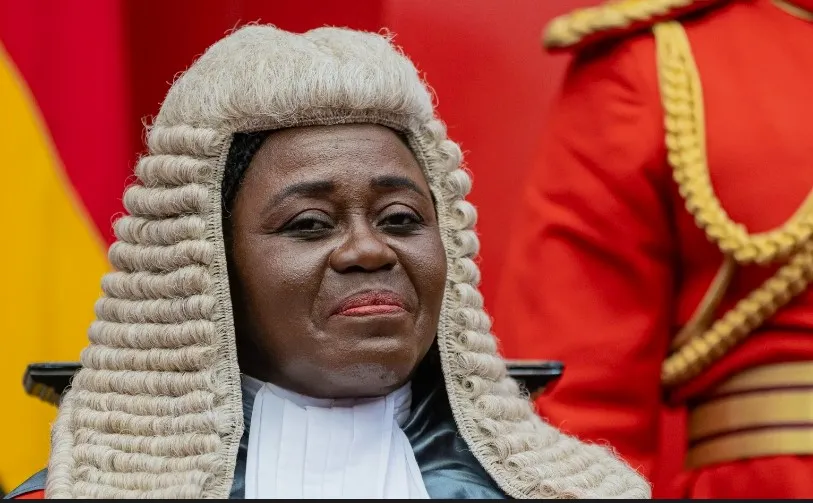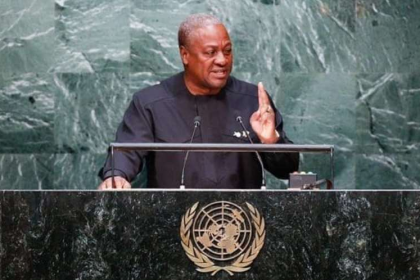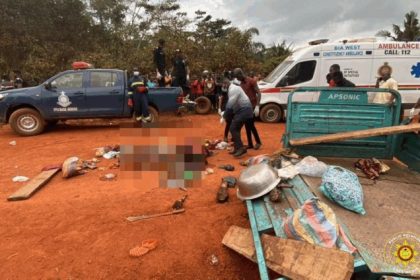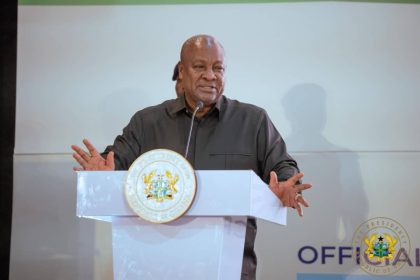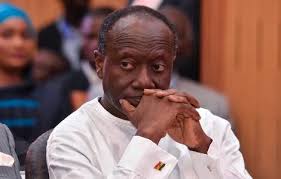The ECOWAS Community Court of Justice has delivered mixed but significant decisions in the human rights case filed by dismissed former Chief Justice of Ghana, Gertrude Araba Esaaba Torkonoo, against the Government of Ghana.
In a ruling delivered on Wednesday, 19 November 2025, the regional court dismissed Torkonoo’s application for interim measures aimed at halting the work of the committee that investigated petitions for her removal and at freezing the consequences of that process.
At the same sitting, however, the court threw out Ghana’s objection to its jurisdiction and held that her human rights claims are admissible, giving the Attorney-General 30 days to respond to the substantive case.
Torkonoo had asked the ECOWAS Court to order provisional measures stopping the work of the fact-finding committee set up under article 146 of Ghana’s 1992 Constitution and to suspend the effects of the process that led to her suspension and subsequent removal from office on 1 September 2025.
She argued that allowing the process to continue would cause irreparable harm to her reputation, career and fundamental rights while her main human rights suit is pending.
The ECOWAS Court disagreed. In its ruling, as relayed by Deputy Attorney-General Dr Justice Srem-Sai and reported by several Ghanaian outlets, the panel held that Torkonoo’s request did not satisfy the strict conditions for provisional measures, which are reserved for situations of clear urgency and imminent, irreparable harm.
The judges pointed to the timeline of events: the former Chief Justice was suspended in April, the committee began sittings weeks later, and her application for interim measures reached the ECOWAS Court more than two months after the key acts she was complaining about.
That delay, the court said, undercut her claim that the situation was so urgent that it could not wait for a final judgment.
On that basis, the court declined to examine the remaining criteria for provisional measures and dismissed the application.
The practical effect is that Torkonoo will not obtain temporary reinstatement or a pause on the consequences of her removal while the human rights case itself is heard.
While the interim relief bid failed, the court was not persuaded by the Government of Ghana’s attempt to block the case altogether.
Attorney-General Dominic Ayine had filed a preliminary objection arguing that the ECOWAS Court lacked jurisdiction because the dispute revolved around Ghana’s constitutional arrangements and was already before domestic courts, including the Supreme Court.
In his view, the regional tribunal should not sit in judgment over a matter that was “sub judice” in Ghana and that flowed from constitutional provisions on the removal of superior court judges.
The ECOWAS Court rejected that objection.
It held that Torkonoo had made out a prima facie case of possible violations of fundamental human rights, particularly the right to a fair hearing, and that this brought the matter squarely within its human rights mandate despite any parallel proceedings in Ghana.
The judges also clarified that the “sub judice” concern does not automatically bar them from hearing a case simply because similar facts are before a national court. What matters, they said, is whether there is a final judgment on the same human rights claims, which there is not in this instance.
Following that ruling, the Attorney-General has been ordered to file a substantive response to Torkonoo’s application within 30 days, allowing the main human rights case to go ahead on the merits.
Gertrude Torkonoo’s fall from the pinnacle of Ghana’s judiciary to a claimant before a regional human rights tribunal has been one of the most politically charged legal stories of the year.
Her troubles began when three separate petitions were submitted to President John Dramani Mahama, alleging misconduct and incompetence in her stewardship as Chief Justice.
Acting under article 146 of the Constitution, the President referred the petitions to the Chief Justice of the time for a prima facie determination, following which Torkonoo herself was suspended on 22 April 2025 and a committee chaired by Supreme Court Justice Gabriel Pwamang was constituted to investigate the allegations.
Throughout the domestic process, Torkonoo consistently protested that she had been treated unfairly. In suits filed in Ghanaian courts and later in her ECOWAS application, she claimed she was not properly informed of the specific allegations against her, that she was sidelined in the prima facie process, and that the committee’s procedures were degrading and inhumane.
She argued that, in practical terms, she had been stripped of her authority and office long before any final determination was made.
The committee eventually recommended her removal.
On 1 September 2025, she was dismissed as Chief Justice and as a justice of the Supreme Court, becoming the most senior judicial officer to be removed from office in the Fourth Republic.
With those steps completed, Torkonoo turned to the ECOWAS Court, accusing the Government of Ghana of violating her rights to a fair hearing, dignity and occupation, among others, under both the Ghanaian Constitution and ECOWAS human rights instruments.
The dismissal of her application for interim measures has led to political spin that she has “lost” at ECOWAS, but legal analysts caution that the core of the case is still alive.
On JoyNews’ “The Pulse,” University of Ghana law lecturer Prof Kwadwo Appiagyei-Atua noted that while the court is unlikely to order her reinstatement or disrupt the tenure of the new Chief Justice if it eventually finds a violation, it could award significant compensation for rights breaches.
In his view, the more realistic outcome, if Torkonoo succeeds, is a finding that aspects of the removal process were unconstitutional or unfair, coupled with monetary damages rather than a return to the bench.
That assessment aligns with the ECOWAS Court’s broader track record, where it has tended to declare violations and award compensation, leaving member states to manage the political and institutional consequences within their own constitutional frameworks.
For now, the key decisions taken on 19 November draw a clear line: the regional human rights court will not intervene to freeze Ghana’s internal processes in the short term, but it has asserted its authority to scrutinise how a sitting Chief Justice was investigated, suspended and removed.
Torkonoo’s legal team is expected to press ahead with arguments that Ghana breached its obligations on due process and judicial independence. The Mahama administration, through the Attorney-General, will in turn seek to convince the Abuja-based tribunal that it followed the Constitution and that the petitions, suspension and removal were all handled within lawful bounds.
The outcome, when the ECOWAS Court eventually issues a final judgment, will have implications not only for Torkonoo’s personal claims and entitlements, but also for how far regional human rights bodies can go in reviewing politically sensitive decisions on the composition of national courts across West Africa.


